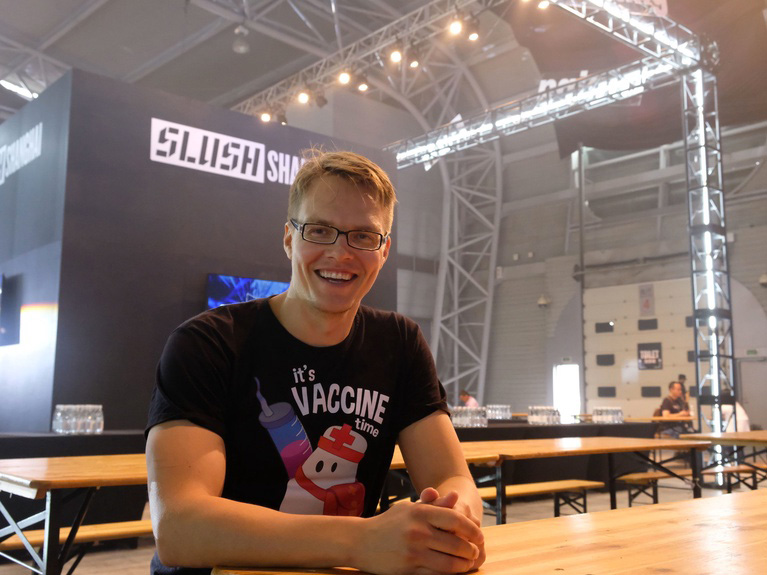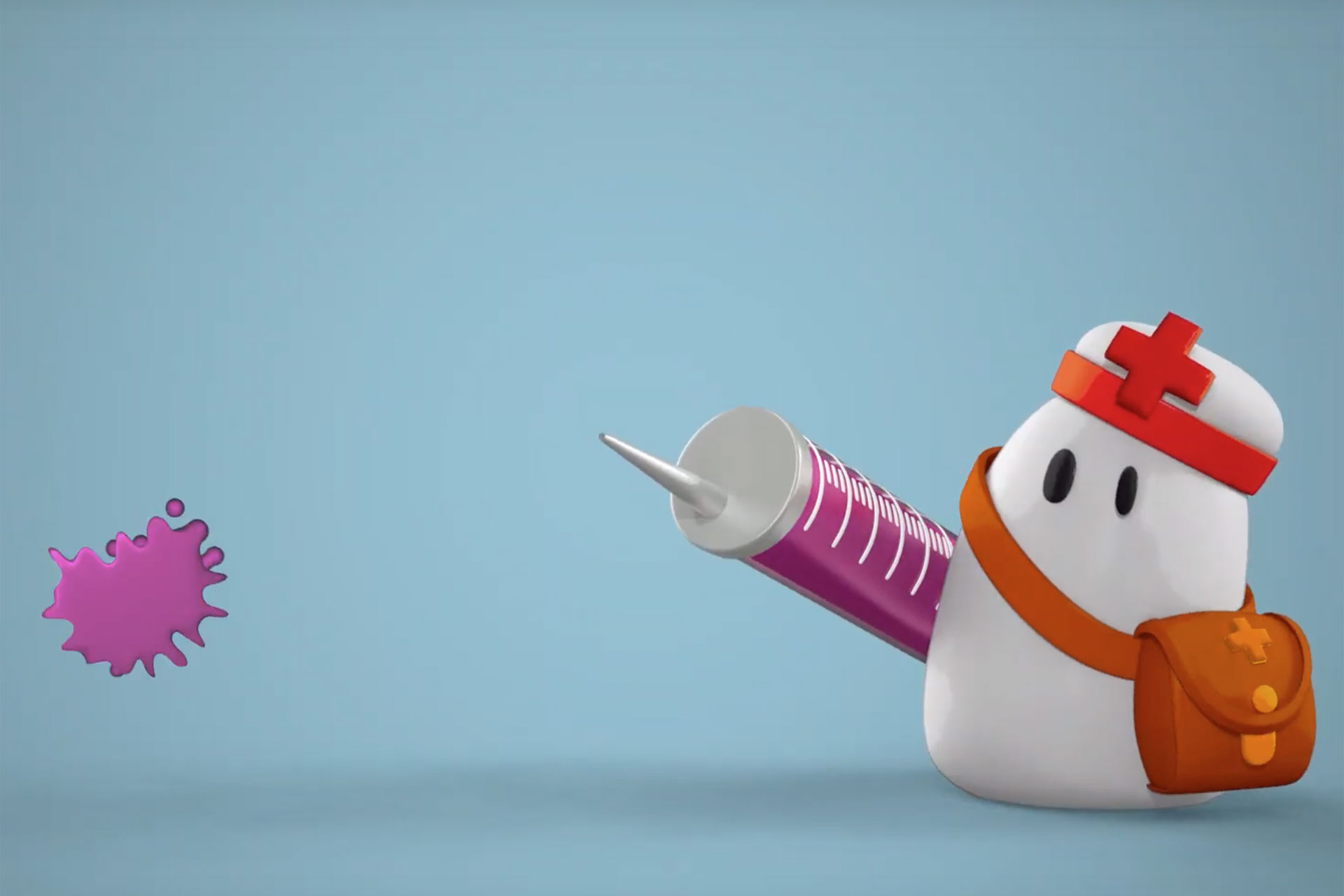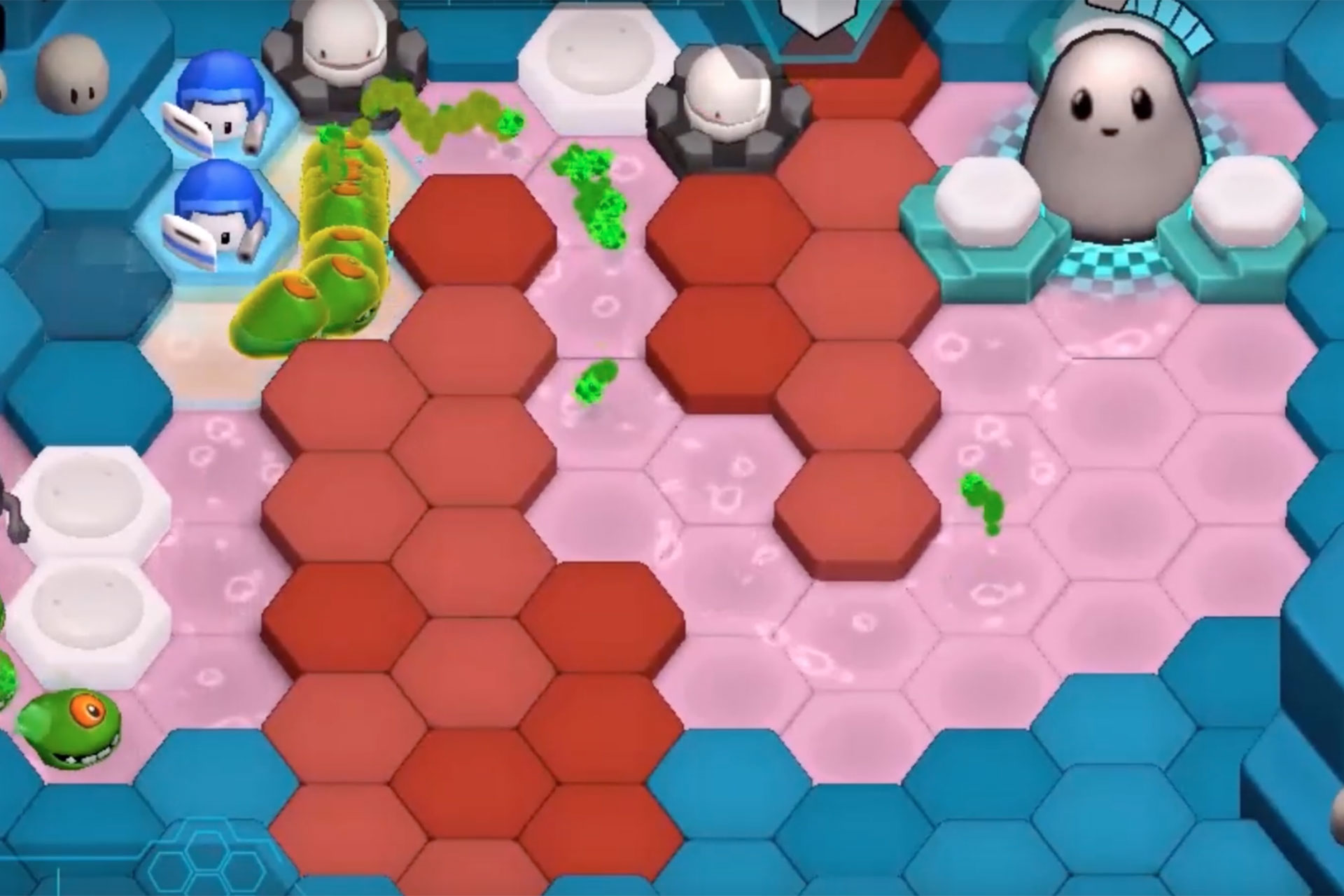Olli Rundgren’s route into public health has been unorthodox. ‘I started out playing high-stakes poker before studying science,’ he told Vaccines Today. ‘I was fascinated by how absorbing the game was, but gambling has its dark side and I knew I didn’t want to do it forever.’

Now he has set up Psyon Games, and assembled a team that includes the developer of the smash hit ‘Angry Birds’. He has brought together artists and game designers with experts in immunology and the biopharma industry.
Together, they have come up with Antidote – a game that combines fun and strategic skill with education. After winning a ‘Game of the Year’ award in Finland, Antidote was highlighted by the WHO as an example of innovative approaches to engaging the public. ‘We tried to make something that would really grab people’s attention and hold it,’ Olli explained.
Long before he began playing poker, Olli had a love of strategy games. He was an avid chess player as a kid, before moving onto board games and computer games. As an adult, Olli’s journey from professional gambler to vaccine champion included postgraduate research on the psychology and physiology of what makes activities engaging – and even addictive.

‘All of this helped me understand the potential of games in shaping behaviour and, working with the right people, we’re applying this to health challenges,’ he said.
The team launched a crowd-funding campaign in 2016 to raise money and awareness of the game. This helped to attract support from a number of pharmaceutical companies.
While user feedback on the game has been positive, integrating it into a public communication campaign requires more than anecdotes. That’s why Finland’s National Institute for Health and Welfare is interested in testing the game in schools – and measuring its effects on vaccine uptake by using the population-based National Vaccine Register.
In a pilot project to be launched later this year, if permissions and funding can be obtained, Antidote will be used by some schools as part of Finland’s annual HPV vaccine education initiative, while other schools are educated in the traditional way – mainly using books and leaflets.
Researchers will then study the differences in attitudes and understanding between those who used the game and those who did not. Crucially, they will also be able to measure vaccine uptake levels to see if the game is better in increasing vaccine uptake than the existing approach.

The initiative comes as new research published in Nature shows that games may be able to inoculate people against fake news.
Dr Hanna Nohynek, Chief Physician at the Infectious Disease Control & Vaccines Unit in Finland’s Department of Health Security, is eager to have THL participate in the trial. ‘Everybody, including WHO and UNICEF, is talking about gamification from the public health perspective and whether it can make a difference,’ she told Vaccines Today.
‘Antidote is a good game and has a lot of immunological information which we think could contribute to our pool of health education materials and interventions. But if we want to say that it actually works, and changes behaviour, we have to measure it.’
The project is in the planning phase, and Psyon and THL have been seeking funding for the research. If the trial demonstrates significant positive effects in schools where the game was used, it could be rolled out more widely.

However, Dr Nohynek added a note of caution: ‘There are other things changing this year too, which complicates things a little, and we might want to consider the precise timing of when the game is used. For example, we are planning on using it in schools but it could also be used earlier in the process of children and their parents seeking information on HPV even before they meet with a physician, during a school health check-up, and when they first will discuss HPV with a health professional.’
Finland’s national vaccination register provides a robust source of up-to-date information on vaccine uptake so any impact of using Antidote will be evaluated with minimal delays, if the project gets the green light.. ‘It is important to try games or social media campaigns as alternatives to book-based information for children and parents – this will help us to develop evidence on what approaches to take to increase knowledge and vaccine behaviour,’ said Nohynek.
Science education
The characters featured in Antidote have a life outside the game itself, appearing in short advertisements and public awareness campaigns on social media.
A video produced as part of a GSK-backed hepatitis information initiative is helping to familiarise the public with the style of the Antidote ‘universe’ even before they have a chance to play the game at school or at home.
Psyon have also taken their science education efforts on the road – swapping digital tools for an analogue (but soft and friendly) two-metre bacterium. The large and interactive model has danced around science fairs
Read more: Serious gaming – can video games turn us into public health players?





Tal
July 23rd, 2019
Interesting trial, but I’m wondering whether the game stands any chance of improving vaccination numbers when it is the parents that usually control whether or not their kid is vaccinated?
Peter English
August 27th, 2019
Fair point, Tal. But young people get different degrees of autonomy at different ages in different countries. In the UK, for example, as long as the child can broadly understand the consequences of the options, they can give consent to treatment, including vaccination. So, vaccines offered at the age of, say, 12 of more, may not require parental consent.
Pingback
July 24th, 2019
[…] Mitä Suomen THL tekee rokotteen turvallisuuden edistämiseksi? Ilmeisesti ei mitänä, vaan haluaa lanseerata kouluihin rokotemyönteisen pelin HPV-rokotuskattavuuden nostamiseksi. […]
Pingback
July 24th, 2019
[…] THL tekee rokotteen turvallisuuden edistämiseksi? Ilmeisesti ei mitään, sen sijaan THL haluaa lanseerata kouluihin rokotemyönteisen pelin HPV-rokotuskattavuuden nostamiseksi. […]
Plum Remson
July 27th, 2019
Only “antidote” is well-done #science asking right questions in right way that shows HPV vaccine results in better health outcomes than not having it, per individual circumstances. Everything else is persuasive propaganda games. How about we try science? https://www.bmj.com/content/366/bmj.l4508
Medixo Centre
August 8th, 2019
I was looking for some Hepatitis articles to read over lunch today (yes, I’m a nerd like that) when I found your excellent article:
It might make a nice addition to your article
Either way, keep up the awesome work!
Buy Ledifos Online
April 5th, 2022
Great Post and Keep Sharing Your Article